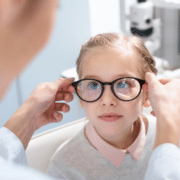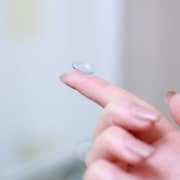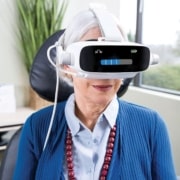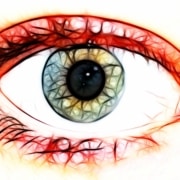Managing Myopia: What You Need To Know
Myopia: The Basics
Myopia, often referred to as nearsightedness, is a common refractive error of the eye where close objects are seen clearly, but distant objects appear blurry. This occurs when the eyeball is too long or the cornea is too curved, causing light rays to focus in front of the retina instead of directly on it. As a result, individuals with myopia have difficulty seeing objects in the distance, while nearby objects remain clear. Myopia typically develops during childhood and tends to worsen gradually until early adulthood. It can be corrected with glasses, contact lenses, or refractive surgery, and various management options are available to help slow down its progression.
Myopia can be managed effectively through various methods, including corrective lenses, orthokeratology, and lifestyle modifications. Each option has its benefits and considerations, but they all aim to slow the progression of nearsightedness and preserve vision in the long term.
Understanding the available management options empowers you to make more informed decisions about your eye health. So, let’s examine the details to find the best solution for you!
Different Approaches for Managing Myopia
Corrective Lenses
Corrective lenses, such as glasses or contact lenses, are a common and effective way to manage myopia. They provide clear vision by compensating for the refractive error in the eye. However, common corrective lenses cannot address the underlying cause of myopia progression, which means that the prescription may need to be adjusted as the myopia worsens over time.
There have been recent technological developments in therapeutic lens treatments for young patients, however.
Therapeutic Lenses
The relatively new availability of MiSight contact lenses, which have been proven to slow myopia progression in children aged 8-12, enables eye care specialists to treat the onset of myopia directly.
MiSight® 1 day* soft contact lenses are specifically designed for myopia control and are FDA approved to slow the progression of myopia in young patients.
Orthokeratology
There are other new technologies for therapeutic myopia management that are now available, including orthokeratology.
Orthokeratology, or Ortho-K, involves wearing specially designed rigid contact lenses overnight to temporarily reshape the cornea. This can provide clear vision during the day without the need for glasses or daytime contact lenses. Ortho-K has been shown to slow down the progression of nearsightedness in some cases, making it a popular choice for children and teenagers.
Lifestyle Changes
Lastly, lifestyle modifications, such as spending more time outdoors and reducing near-work activities, have also been linked to a reduced risk of myopia progression. Encouraging children to engage in outdoor activities and take regular breaks from close-up tasks like reading or screen time can help mitigate the development of myopia.
Each of these options has its benefits and considerations, and the best choice for you will depend on factors such as your age, lifestyle, and the severity of your myopia. By exploring these options further, you can work with your eye care provider to develop a personalized management plan that meets your needs and preserves your vision for the future.
Corrective lenses provide immediate vision correction but may not address the underlying issue of myopia progression. Orthokeratology offers the advantage of temporary corneal reshaping, potentially slowing down myopia progression, but it requires consistent and proper lens care and may not be suitable for everyone. Lifestyle modifications, while beneficial, may require significant lifestyle changes and may not be sufficient on their own for managing myopia, especially in cases of moderate to high myopia.
Moreover, it’s essential to consider factors such as comfort, convenience, and long-term effectiveness when choosing a management option. Some individuals may prefer the ease of wearing glasses or contact lenses, while others may value the potential long-term benefits of orthokeratology or lifestyle modifications. Additionally, regular eye exams are crucial for monitoring myopia progression and ensuring that the chosen management strategy remains effective over time.
Collaborate with your eye care provider to tailor a management plan that aligns with your individual preferences, lifestyle, and vision goals.
If you have myopia, please consider scheduling an appointment with your eye care provider to discuss how that condition can be corrected and which option may be best suited to your individual needs. Whether you’re exploring corrective lenses, considering orthokeratology, or implementing lifestyle modifications, your eye care provider can offer personalized guidance and recommendations based on your specific circumstances. Taking this proactive step ensures that you’re actively addressing your nearsightedness and working towards preserving your vision for years to come.
Your partners at Kirman Eye are passionately dedicated to providing our patients with the best and most effective eye-care options available when anticipating all of your optical needs.
Contact us to work with you today!











